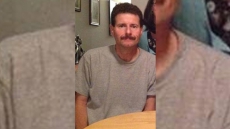OTTAWA — It has taken more than 40 years but the government of Canada is finally formally committing to legalizing marijuana.
Gov. Gen. David Johnston delivered the governing priorities of Justin Trudeau's Liberals in the speech from the throne Friday, including a pledge to "legalize, regulate and restrict access to marijuana."
The Liberals promised to legalize pot more than a year ago, prompting a months-long barrage of Conservative attack ads in multiple languages that asserted the move would make marijuana readily available to children through sales at corner stores.
The scare tactics failed to avert a Liberal majority government when Canadians went to the polls on Oct. 19.
Yet amid a flood of priorities from the highly activist Liberals, no one seemed absolutely certain marijuana legalization would make the cut.
But there it was Friday, in a section of the throne speech headlined "Security and Opportunity" — some 43 years after a federal inquiry headed by Gerald Le Dain recommended in 1972 that Canada stop prosecuting people for simple possession and cultivation of cannabis.
"The actual perception of harm of cannabis is now so different from that which the law would suggest, that any change in the law could only be recognized as a belated recognition of the facts," the commission reported — four decades ago.
Donald MacPherson, the director of the Canadian Drug Policy Coalition at Simon Fraser University's Centre for Applied Research in Mental Health and Addictions, called Friday's throne speech "a groundbreaking day."
Decriminalization or legalization is being discussed "in virtually every country where cannabis is being used," MacPherson said in an interview from Kelowna, B.C., adding Canada's policy move has been called for by public health practitioners and is long overdue.
He said pot usage rates by Canadian youth are "through the roof" and a policy of smart regulation to restrict access is worth a try.
"We can't do worse than we're doing now."
Lawyer Alan Young, a longtime advocate of legalizing marijuana, said the most compelling argument against legalization was the potentially harsh reaction by Canada's biggest trading partner, the United States, but American public opinion and policy have moved so far in the past decade that caution is no longer needed.
Canada's pot prohibition has been "imposing an enormous burden on a criminal justice system that is already over-extended," said the Osgoode Hall law professor.
Young has been advocating a policy shift for more than 30 years and says he's been let down by governments before, but believes this time the law will change, having discussed the matter directly with Trudeau when the Liberals were first formulating their policy.
"But I don't want to paint Justin Trudeau as a hero, because he's come in at an easy point when the U.S. has backed off" on its war on drugs, said Young.
Pot activist Jody Emery called the throne speech a "fantastic" acknowledgment of the failure of prohibition.
But she said the heavy regulatory approach that seems to be emphasized in the Liberal approach is unnecessary and counterproductive.
She and her husband Marc Emery, Canada's self-styled Prince of Pot, will be calling on Trudeau to announce a moratorium on marijuana arrests while they develop the details of their legalized pot policy.
THRONE SPEECH HERALDS HOPE OF NEW RELATIONSHIP WITH ABORIGINAL PEOPLES

OTTAWA — Justin Trudeau's Liberal government set out to make good on its campaign promise to reset the relationship with Canada's Aboriginal Peoples in a throne speech Friday that emphasized the need for reconciliation.
The newly elected government's first speech from the throne, delivered in the Senate chamber by Gov. Gen. David Johnston, heralded the start of a new partnership with First Nations, Metis and Inuit people.
"Because it is both the right thing to do and a certain path to economic growth, the government will undertake to renew, nation-to-nation, the relationship between Canada and indigenous peoples — one based on recognition of rights, respect, co-operation and partnership," Johnston said.
The government will work jointly to implement all 94 recommendations of the Truth and Reconciliation Commission, which explored the dark legacy of Canada's now-defunct residential school system.
Johnston mentioned one of those recommendations specifically: launching a long-awaited public inquiry into the phenomenon of missing and murdered aboriginal women.
Johnston also said the government would take steps towards ensuring every aboriginal child in Canada receives a quality education.
The federal Liberals have long insisted they intend to strike a different tone with indigenous people — a deliberate attempt to dial back on the tension that existed with the former Conservative government.
In January 2013, the relationship reached a tipping point when the Idle No More movement was at its pinnacle.
Protesters took to the streets demanding former Prime Minister Stephen Harper meet with indigenous leaders and the Governor General as Attawapiskat First Nation chief Theresa Spence staged a high-profile hunger protest.
The movement garnered international attention as aboriginal people across Canada protested everything from missing and murdered women to the gutting of environmental protections in the Navigable Waters Protection Act.
Interim Conservative leader Rona Ambrose seemed to take a much different approach Friday as she praised the Liberals for their approach to the file.
"I think there's a lot of positive things that the government's talking about when it comes to First Nations," Ambrose said. "We will be there to support those positive initiatives."
As part of the new government's commitment, Prime Minister Justin Trudeau is scheduled to speak at special chiefs assembly in Ottawa next Tuesday hosted by the Assembly of First Nations.
The government is also moving ahead with the first steps to set out the mandate for the missing and murdered inquiry. Pre-inquiry consultations will be announced in the near future, said Indigenous Affairs Minister Carolyn Bennett.
"We hope we will find that balance of the urgency of the inquiry, but also the importance of getting it right," she said.
There have also been other signals that the Liberals intend to come at aboriginal affairs from a different direction than their predecessors.
On Thursday, Democratic Institutions Minister Maryam Monsef kicked off a news conference "by acknowledging our presence on the traditional territory of the Algonquin peoples."
It's a symbolic gesture that's part of the effort to signal a new relationship, Bennett noted.
"There are many voices suggesting that acknowledgment ... that recognition of rights and acknowledgment of the people who were here first is very much part of rebuilding the relationship," she said.
"We have to be in the business of reconciliation, and that means starting with the recognition of the truth."
Isadore Day, the Ontario regional chief of the Assembly of First Nations, said the government's language indicates the prime minister will make good on his promise to recognize a nation-to-nation relationship.
"It is very significant," Day said.
"This government, and other governments like the Liberal provincial government in Ontario, are very consistent in their messaging about where they are, who the people are, they talk about the treaties and they talk about the importance of education and awareness."
Charlie Angus, the NDP critic on aboriginal affairs, said he was pleased to see positive signs of reconciliation in the speech after the "confrontational, mean-spirited approach" from the Conservatives.
He still has big questions for the government, however.
"There are some gaps — and some questionable gaps," Angus said. "For example, they made a promise to end the boil-water advisories on reserves in five years, they've talked about the infrastructure crisis on reserves....
"Reconciliation doesn't happen with just big words. It happens on the ground in communities."





